Alexey Averkin
Overview Of Satellite Image Recognition Models
Dec 07, 2022Abstract:In this article, the analysis of existing models of satellite image recognition was carried out, the problems in the field of satellite image recognition as a source of information were considered and analyzed, deep learning methods were compared, and existing image recognition methods were analyzed. The results obtained will be used as a basis for the prospective development of a fire recognition model based on satellite images and the use of recognition results as input data for a cognitive model of forecasting the macro-economic situation based on fuzzy cognitive maps.
Development Of A Fire Detection System On Satellite Images
Dec 07, 2022Abstract:This paper discusses the development of a convolutional architecture of a deep neural network for the recognition of wildfires on satellite images. Based on the results of image classification, a fuzzy cognitive map of the analysis of the macroeconomic situation was built. The paper also considers the prospect of using hybrid cognitive models for forecasting macroeconomic indicators based on fuzzy cognitive maps using data on recognized wildfires on satellite images.
Deep Neural Networks and Neuro-Fuzzy Networks for Intellectual Analysis of Economic Systems
Nov 11, 2020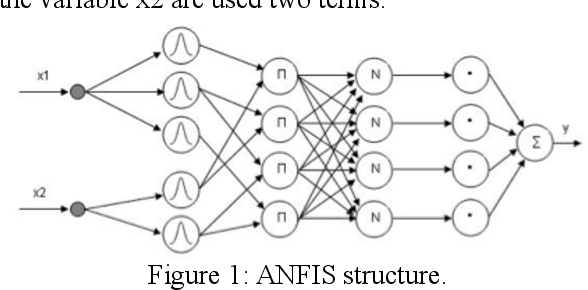
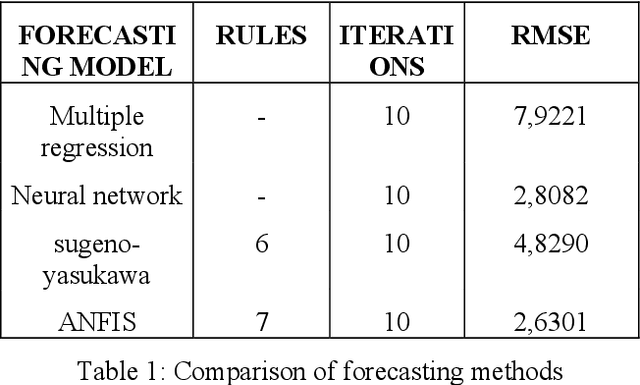
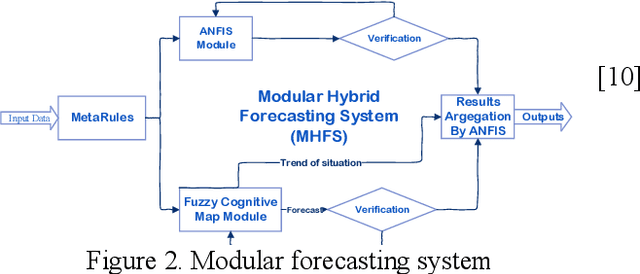
Abstract:In tis paper we consider approaches for time series forecasting based on deep neural networks and neuro-fuzzy nets. Also, we make short review of researches in forecasting based on various models of ANFIS models. Deep Learning has proven to be an effective method for making highly accurate predictions from complex data sources. Also, we propose our models of DL and Neuro-Fuzzy Networks for this task. Finally, we show possibility of using these models for data science tasks. This paper presents also an overview of approaches for incorporating rule-based methodology into deep learning neural networks.
Prediction of Facebook Post Metrics using Machine Learning
May 15, 2018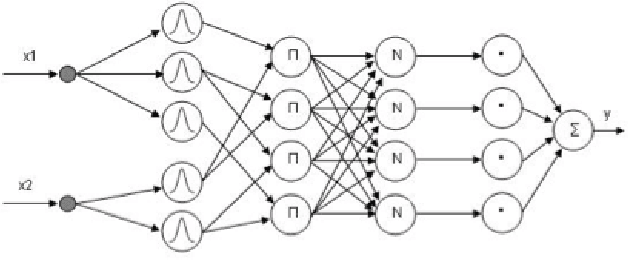
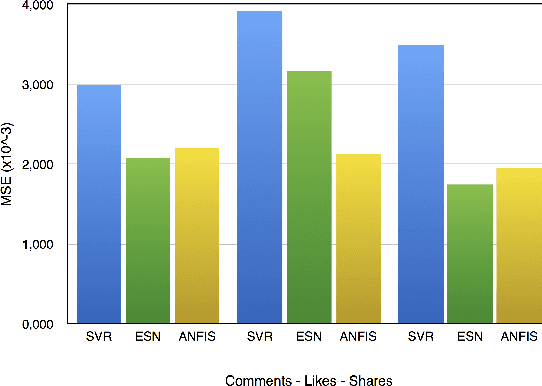

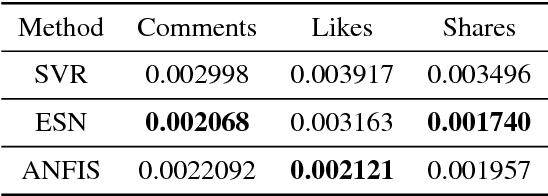
Abstract:In this short paper, we evaluate the performance of three well-known Machine Learning techniques for predicting the impact of a post in Facebook. Social medias have a huge influence in the social behaviour. Therefore to develop an automatic model for predicting the impact of posts in social medias can be useful to the society. In this article, we analyze the efficiency for predicting the post impact of three popular techniques: Support Vector Regression (SVR), Echo State Network (ESN) and Adaptive Network Fuzzy Inject System (ANFIS). The evaluation was done over a public and well-known benchmark dataset.
 Add to Chrome
Add to Chrome Add to Firefox
Add to Firefox Add to Edge
Add to Edge